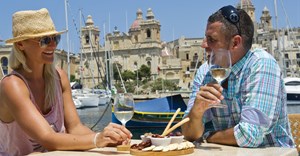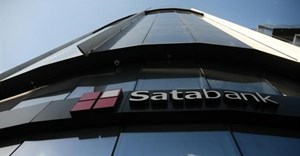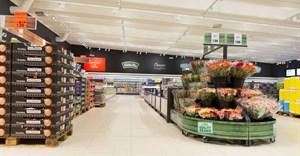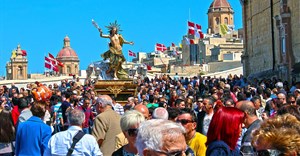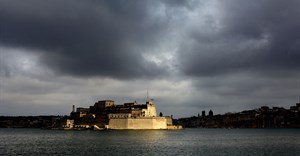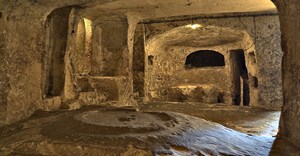A South African's guide to moving to and making it in Malta: The secret language of doors
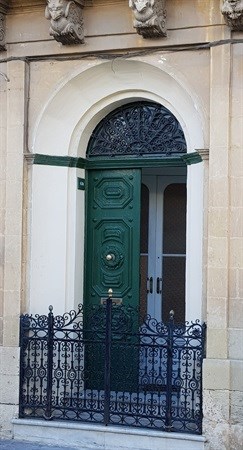
Unlike South Africa where the average suburban house may have a front garden or off-street parking with the house set back from the street – and even then with a front porch, most Maltese properties in the townhouse or maisonette style are sited directly onto the pavement. So whereas South Africans’ first line of defence might be a garden wall or intercommed gate before you reach the front door, here in Malta your front door opens onto the street.
In village houses (or houses of a certain age when the whole island was a village) there is a metre high barrier, usually of decorative wrought iron, in front of your door called a 'goat gate'. As the name implies, this is to stop goats and would have allowed you to leave your front door open and not have wandering livestock enter your property. To be honest, the idea of goats roaming the neighbourhood is as misguided as the old SA chestnut of lions in the streets, but the architectural detail remains.
Open door policy
In the summer months, it’s very common for householders to leave their front doors wide open – a sure sign that the property doesn’t have air conditioning! It’s also the season when the village women sit outside in front of their homes – often in small animated groups on kitchen chairs in the long, hot, twilight of the Mediterranean. Maltese husbands, however, are always to be found in the piazza sitting on wooden benches outside the community hubs of the two rival political party clubs, the band clubs (often two competing clubs in the larger villages) and the neighbourhood drinking holes.
Behind the goat gate and the front door lies another door – the antiporta or inner door. If you’ve ever been into a bank and had to pass through a dual door security system, you will have some idea of the antiporta. Effectively, it’s a rectangular wooden vestibule in your front hallway. In most houses, the front door is solid wood, but the antiporta will have inset glass panes. In our house, the handle of the antiporta is linked to a bell so it sounds every time that inner door is opened (and makes the dogs bark). Why so many doors you ask?
Surely there’s not a security problem?
No, the kind of property crime that bedevils South Africans and their household insurance policies, is all but non-existent here. Our multiple Maltese doors are a secret system for signalling if you may call on us!
If I'm at home and have invited someone over, or if I'm at home and welcome a social call, I open the front door but leave the antiporta closed. That’s code for 'at home and receiving visitors'. A closed front door either means you’re not at home or 'do not disturb'. Goat gates traditionally are always kept shut.
New census figures released
In other news, the latest census figures are out and Malta’s population has risen to 460,000 (previously 440,000) of which 11,8% are foreigners. As is the curious state of affairs with census figures, they’re already out of date when they get published and Malta’s new 460,297 figure was calculated at the end of 2016. Since then, thousands more foreign workers have been coming to Malta’s burgeoning i-gaming sector for which skills are always in demand. And with our booming economy, the country needs more skilled labour to keep the momentum going.
Malta’s front door is open!
Business takeout: Apart from various residency and critical skills programmes for expats, Malta allows investors to acquire citizenship. This controversial cash-for-passports scheme has brought over a thousand wealthy foreign nationals and family members into the population register.
Social take-home: For a real taste of community life, go into any band club or political party building. The band clubs are inevitably the finest buildings in the village and the drinks are a third of what you’d pay elsewhere. Tea (€0.50 or R7,50) is typically served in a glass.



